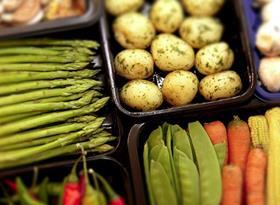
Plastic waste and the use of recyclable materials will become a more important issue to shoppers than price in the next decade, according to new research.
The survey by YouGov on behalf of ThoughtWorks revealed that, looking ahead to the next ten years, 62 per cent of the 2,000 people surveyed were concerned with the need to reduce plastic packaging and switch to recyclable materials, compared to 57 per cent who said price would be their main driver.
Food waste and food provenance also emerged as important considerations for consumers, with 46 per cent and 36 per cent respectively saying these issues affected their decision-making on what to buy and where to buy it from.
ThoughtsWorks’director of retail strategy Kevin Flynn said the research highlighted thatconsumer behaviour ischanging,requiring retailers and supermarkets to adapt tothis.
He warned that if retailers don’t listen to their consuemrs on issues such as reducing plastic packaging waste, shoppers could simply decide to shop elsewhere.
“What is emphatic, and a little surprising, from our research is how well people can see what’s coming next,” he said. “The days of pushing a trolley around a big warehouse, buying over-packaged goods and chasing value offers are numbered.
“Consumers have more and more choiceabout how to shop and there will be new entrants coming into the market in the next 10 years. The whole retail industry is acutely aware that it needs to be nimble and move quickly to respond to this changing environment.”
The research follows growing public concern about the scale of plastic pollution, with a Foresight report warning in March that the amount of plastic in the world’s oceans cold triple in the next decade if nothing is done to reduce it.
Consumers’ commitment to tackling the problem appears to extend beyond the supermarket shopping habits, with the British public showing huge support for a Treasury appeal on how taxes could be used to tackle plastic waste.
Other findings from the report were that 36 per cent said they would place much more importance on where their food produced, while 32 per cent claimed they would seek assurance that it had been ethically and sustainably sourced.
In addition, 18 per cent of 18-24-year-olds predicted that, in future, people will no longer eat meat.



